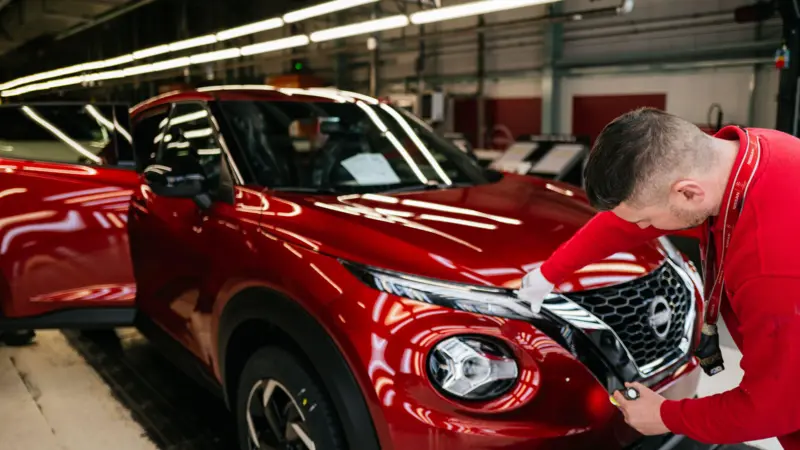Japanese carmaker Nissan has announced another round of job cuts, affecting 11,000 employees globally and shutting down seven factories. This restructuring comes in response to the company’s struggles in the face of weak sales.
Falling sales in China and heavy discounting in the US, Nissan’s two largest markets, have significantly impacted its earnings. Additionally, a proposed merger with Honda and Mitsubishi, which was set to take place in February, fell through.
The latest job cuts bring the total number of layoffs announced by Nissan in the past year to approximately 20,000, representing 15% of its workforce. The exact locations of these job cuts are still being determined, and it remains uncertain whether Nissan’s plant in Sunderland will be affected.
The government has acknowledged the importance of Nissan’s Sunderland plant to the northeast of England and has expressed its commitment to collaborating closely with Nissan on its restructuring plans.
Nissan employs approximately 133,500 people worldwide, with a significant portion of them based in Sunderland, where around 6,000 employees work.
The majority of the latest job cuts (two-thirds) will be in the manufacturing sector, while the remaining third will impact sales, administrative roles, research and development, and contract staff, as revealed by Nissan’s chief executive, Ivan Espinosa.
These layoffs come on top of the 9,000 job cuts announced by Nissan in November as part of its cost-saving initiative aimed at reducing its global production by a fifth.
In February, negotiations between Nissan and its larger rival Honda collapsed due to disagreements on a multi-billion-dollar merger. The proposed merger aimed to combine their businesses to counter competition from rival firms, particularly in China.
If successful, the merger would have resulted in the creation of a $60 billion motor industry giant, ranking as the fourth largest in the world based on vehicle sales, behind Toyota, Volkswagen, and Hyundai.
Following the failure of the negotiations, then-chief executive Makoto Uchida was replaced by Mr. Espinosa, who previously held the position of chief planning officer and head of Nissan’s motorsports division.
Nissan’s financial performance has also been affected, with the company reporting an annual loss of 670 billion yen ($4.5 billion; £3.4 billion). The impact of US President Donald Trump’s tariffs has further exacerbated the challenges faced by the struggling firm.
Mr. Espinosa acknowledged that the previous financial year had been “challenging,” characterized by rising costs and an “uncertain environment.” This “wake-up call” served as a stark reminder of the difficulties faced by the company.
Due to the “uncertain nature of US tariff measures,” Nissan refrained from providing a forecast for income in the upcoming year. Despite this, the company anticipates flat profits this year, even without factoring in the potential impact of tariffs.
Last week, Nissan made a significant decision to scrap its plans to establish a battery and electric vehicle factory in Japan. This move comes as part of the company’s efforts to reduce investment. Nissan has been grappling with challenges in key markets, particularly in China. Growing competition from homegrown firms like BYD has led to falling prices in the Chinese market.
China has emerged as the world’s largest producer of electric vehicles, while some established car-making nations failed to anticipate the surge in demand for this new technology. In the US, another major market for Nissan, inflation and higher interest rates have negatively impacted new vehicle sales. However, Nissan retail sales experienced a slight increase last year.
Despite these challenges, Nissan’s sales did decline in China, as well as in Japan and Europe.

















